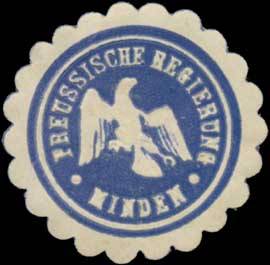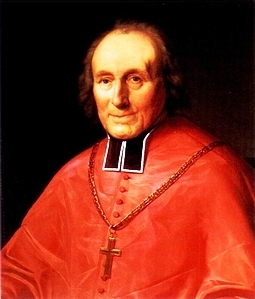|
Regierungsbezirk Minden
The Minden Region () was a government region located in the north-easternmost part of the Prussian Province of Westphalia. It existed from the years 1816 to 1947. It had an area of 5,262 km² and 736,128 inhabitants (1910). One third were Catholics. The capital was Minden and the region was divided into eleven districts. The Minden Region ceased to exist in 1947, when it merged with the Free State of Lippe to form the Detmold Region in the new federal state of North Rhine-Westphalia. References *Adapted from Swedish Wikipedia. MindenRegion MindenRegion Minden MindenRegion Minden Region In geography, regions, otherwise referred to as areas, zones, lands or territories, are portions of the Earth's surface that are broadly divided by physical characteristics (physical geography), human impact characteristics (human geography), and ... MindenRegion MindenRegion MindenRegion {{Germany-hist-stub ... [...More Info...] [...Related Items...] OR: [Wikipedia] [Google] [Baidu] |
Regierungsbezirk
A ' (, 'governmental district') is a type of administrative division in Germany. Currently, four of sixteen ' (states of Germany) are split into '. Beneath these are rural and urban districts ' (plural, ) serve as regional mid-level local government units in four of Germany's States of Germany, sixteen federal states: Baden-Württemberg, Bavaria, Hesse and North Rhine-Westphalia. Each of the nineteen ' features a non-legislative governing body called a ' (governing presidium) or ' (district government) headed by a ''Regierungspräsident (Germany), Regierungspräsident'' (governing president), concerned mostly with administrative decisions on a local level for districts of Germany, districts within its jurisdiction. Saxony has ' (directorate districts) with more responsibilities shifted from the Landtag, state parliament. Translations ' is a German term variously translated into English as "governmental district", "administrative district" or "province",Shapiro, Henry D. and Jo ... [...More Info...] [...Related Items...] OR: [Wikipedia] [Google] [Baidu] |
Province Of Westphalia
The Province of Westphalia () was a Provinces of Prussia, province of the Kingdom of Prussia and the Free State of Prussia from 1815 to 1946. In turn, Prussia was the largest component state of the German Empire from 1871 to 1918, of the Weimar Republic and from 1918 to 1933, and of Nazi Germany from 1933 until 1945. The province was formed and awarded to Prussia at the Congress of Vienna in 1815, in the aftermath of the Napoleonic Wars. It combined some territories that had previously belonged to Prussia with a range of other territories that had previously been independent principalities. The population included a large population of Catholics, a significant development for Prussia, which had hitherto been almost entirely Protestant. The politics of the province in the early nineteenth century saw local expectations of Prussian reforms, increased self-government, and a constitution largely stymied. The Revolutions of 1848 led to an effervescence of political activity in the pro ... [...More Info...] [...Related Items...] OR: [Wikipedia] [Google] [Baidu] |
Minden
Minden () is a middle-sized town in the very north-east of North Rhine-Westphalia, Germany, the largest town in population between Bielefeld and Hanover. It is the capital of the district () of Minden-Lübbecke, situated in the cultural region of Ostwestfalen-Lippe (OWL) and the administrative Detmold (region), region of Detmold. The town extends along both sides of the River Weser, and is crossed by the Mittelland Canal, which is led over the river on the Minden Aqueduct. In its 1,200-year written history, Minden had functions as diocesan town from to the Peace of Westphalia in , as capital of the Prince-Bishopric of Minden as imperial territory since the 12th century, afterwards as capital of Prussia's Minden-Ravensberg until the end of the Holy Roman Empire in 1806, and as capital of the East-Westphalian region from the Congress of Vienna until 1947. Furthermore, Minden has been of great military importance with fortifications from the 15th to the late 19th century, and is s ... [...More Info...] [...Related Items...] OR: [Wikipedia] [Google] [Baidu] |
Districts Of Prussia
Prussian districts () were Administrative division, administrative units in the former Kingdom of Prussia, part of the German Empire from 1871 to 1918, and its succession of states, successor state, the Free State of Prussia (1918–1933) , Free State of Prussia, similar to a county or a shire. They were established in the course of the Prussian reforms, Stein-Hardenberg Reforms from 1815 to 1818 at an intermediate level, between the higher Provinces of Prussia, provinces and the Regierungsbezirk, government districts (''Regierungsbezirke''), and the lower Municipalities of Germany, municipal governments (''Gemeinde (Germany), Gemeinden''). Then part of a modern and highly effective public administration structure, they served as a model for the present-day districts of Germany In the aftermath of World War I, the Prussian districts of Eupen and Malmedy (Belgium) were annexed by Belgium in 1925, thereby causing the presence of a German-speaking minority. Administration After the ... [...More Info...] [...Related Items...] OR: [Wikipedia] [Google] [Baidu] |
Free State Of Lippe
The Free State of Lippe () was created following the abdication of Prince Leopold IV of the Principality of Lippe on 15 November 1918, following the German Revolution. It was a state in Germany during the Weimar Republic and Nazi Germany. After the end of the Second World War, the Control Commission for Germany – British Element (CCG/BE) abolished the state of Lippe in January 1947 and incorporated it into the new German state of North Rhine-Westphalia that had been created three months earlier. Government The Lippe Constitution was passed on 21 December 1920. It established a state parliament consisting of a ''landtag'' of 21 deputies elected for a term of four years by universal suffrage. The state administration consisted of a collective three-man ''Landespräsidium'' (State Presidency), headed by a chairman, that was responsible to the ''landtag'' and could be removed by a vote of no confidence. Technically, the triumvirate as a whole was the head of state and laws we ... [...More Info...] [...Related Items...] OR: [Wikipedia] [Google] [Baidu] |
Detmold (region)
Regierungsbezirk Detmold () is one of the five of North Rhine-Westphalia, Germany, located in the north-east of the state. It is congruent with the (cultural) region of Ostwestfalen-Lippe (OWL, East Westphalia–Lippe (district), Lippe). The Regierungsbezirk was created in 1947 when the former state of Lippe was incorporated into North Rhine-Westphalia by merging the former Regierungsbezirk Minden with the territory of the Free State of Lippe. The Regierungsbezirk Minden dates back to 1815, when the class of administrative regions was initially created. Location The Regierungsbezirk Detmold is located in the north-east of North Rhine-Westphalia and therefore it forms the area where the German low mountains are divided from the North German Plain. As the Regierungsbezirk has an expanse of circa 6,500 km², it is one fifth of the area of North Rhine-Westphalia. North and east of the Regierungsbezirk is the German state of Lower Saxony, south there is the state of Hesse. At t ... [...More Info...] [...Related Items...] OR: [Wikipedia] [Google] [Baidu] |
North Rhine-Westphalia
North Rhine-Westphalia or North-Rhine/Westphalia, commonly shortened to NRW, is a States of Germany, state () in Old states of Germany, Western Germany. With more than 18 million inhabitants, it is the List of German states by population, most populous state in Germany. Apart from the city-states (Berlin, Hamburg and Bremen), it is also the List of German states by population density, most densely populated state in Germany. Covering an area of , it is the List of German states by area, fourth-largest German state by size. North Rhine-Westphalia features 30 of the 81 German municipalities with over 100,000 inhabitants, including Cologne (over 1 million), the state capital Düsseldorf (630,000), Dortmund and Essen (about 590,000 inhabitants each) and other cities predominantly located in the Rhine-Ruhr metropolitan area, the largest urban area in Germany and the fourth-largest on the European continent. The location of the Rhine-Ruhr at the heart of the European Blue Banana make ... [...More Info...] [...Related Items...] OR: [Wikipedia] [Google] [Baidu] |
1815 Establishments In Prussia
Events January * January 2 – Lord Byron marries Anna Isabella Milbanke in Seaham, county of Durham, England. * January 3 – Austria, Britain, and Bourbon-restored France form a secret defensive alliance treaty against Prussia and Russia. * January 8 – Battle of New Orleans: American forces led by Andrew Jackson defeat British forces led by Sir Edward Pakenham. American forces suffer around 60 casualties and the British lose about 2,000 (the battle lasts for about 30 minutes). * January 13 – War of 1812: British troops capture Fort Peter in St. Marys, Georgia, the only battle of the war to take place in the state. * January 15 – War of 1812: Capture of USS ''President'' – American frigate , commanded by Commodore Stephen Decatur, is captured by a squadron of four British frigates. February * February 3 – The first commercial cheese factory is founded in Switzerland. * February 4 – The first Dutch student association ... [...More Info...] [...Related Items...] OR: [Wikipedia] [Google] [Baidu] |
1947 Disestablishments In Germany
It was the first year of the Cold War, which would last until 1991, ending with the dissolution of the Soviet Union. Events January * January–February – Winter of 1946–47 in the United Kingdom: The worst snowfall in the country in the 20th century causes extensive disruption of travel. Given the low ratio of private vehicle ownership at the time, it is mainly remembered in terms of its effects on the railway network. * January 1 – The ''Canadian Citizenship Act, 1946, Canadian Citizenship Act'' comes into effect, providing a Canadian citizenship separate from British law. * January 4 – First issue of weekly magazine ''Der Spiegel'' published in Hanover, Germany, edited by Rudolf Augstein. * January 10 – The United Nations adopts a resolution to take control of the free city of Trieste. * January 15 – Elizabeth Short, an aspiring actress nicknamed the "Black Dahlia", is found brutally murdered in a vacant lot in Los Angeles; the mysterious case is never solv ... [...More Info...] [...Related Items...] OR: [Wikipedia] [Google] [Baidu] |
Former Government Regions Of Germany
A former is an object, such as a template, gauge or cutting die, which is used to form something such as a boat's hull. Typically, a former gives shape to a structure that may have complex curvature. A former may become an integral part of the finished structure, as in an aircraft fuselage, or it may be removable, being used in the construction process and then discarded or re-used. Aircraft formers Formers are used in the construction of aircraft fuselage, of which a typical fuselage has a series from the nose cone to the empennage, typically perpendicular to the longitudinal axis of the aircraft. The primary purpose of formers is to establish the shape of the fuselage and reduce the column length of stringers to prevent instability. Formers are typically attached to longerons, which support the skin of the aircraft. The "former-and-longeron" technique (also called stations and stringers) was adopted from boat construction, and was typical of light aircraft built until ... [...More Info...] [...Related Items...] OR: [Wikipedia] [Google] [Baidu] |




